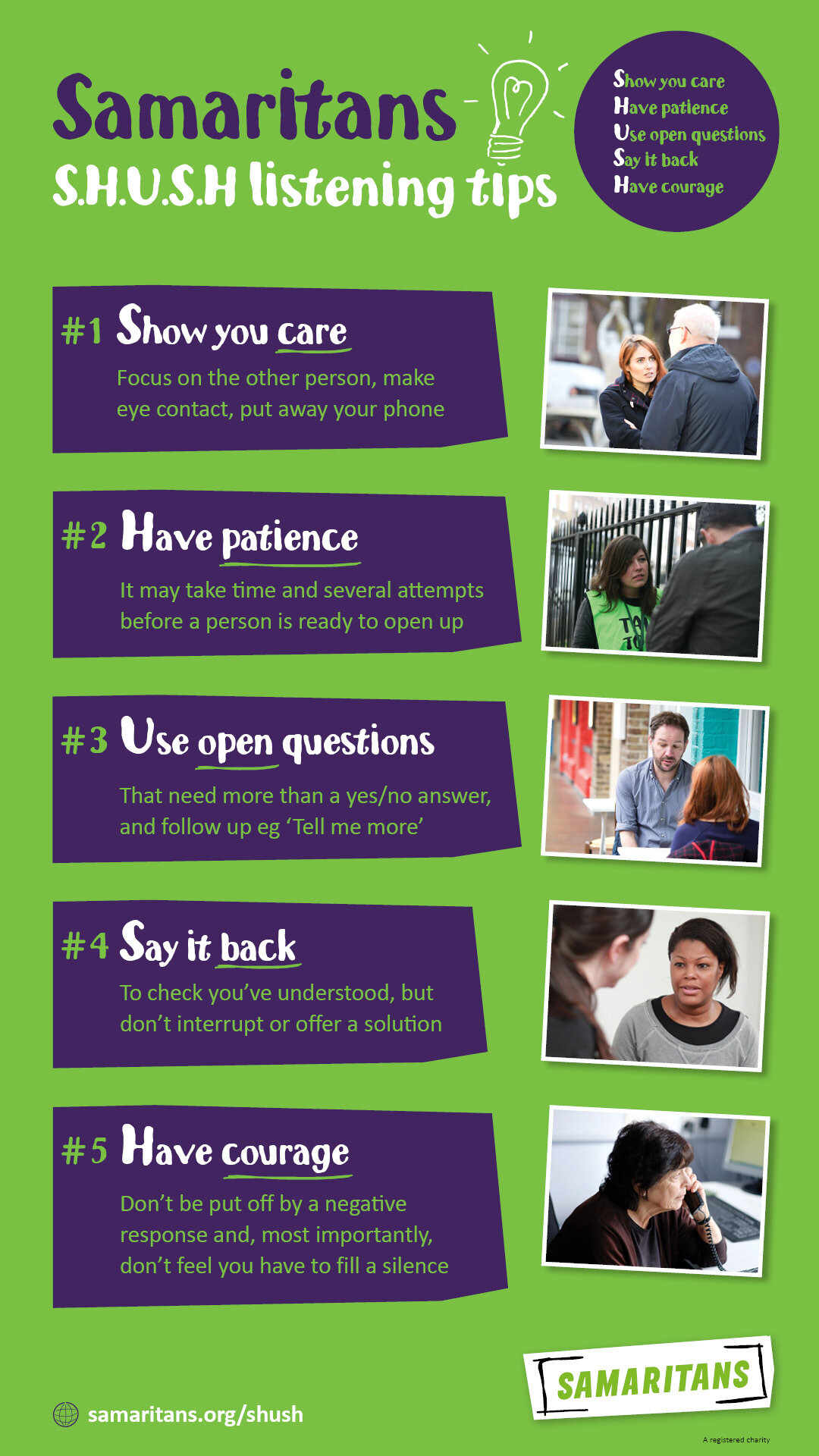How to talk to young men about mental health
If you’re worried about someone, such as a male friend, relative or colleague, reaching out to them could help them know that someone cares and that they are valued. Even if you aren't sure quite what to say, the important thing is that you say something.
Before you reach out, you should consider how you will approach the conversation. Consider what environment will make them feel most comfortable. Some men may feel intimidated opening up face-to-face; initially, a text conversation may help to break the ice, as they can take as much time as they need to formulate their replies. Otherwise, you could plan an activity like going for a walk.
You should also consider what you will say. Let them know that you are concerned and why, and that you want to help. Here are some examples of conversation starters that you may wish to use:
I’ve been noticing that you are (sad/distant/not yourself). I’m really concerned. Can we talk about what’s been bothering you?”
If you are reaching out to them because you are concerned that something they have experienced is negatively affecting their wellbeing, such as relationship problems, loss or study or work pressure, you could say something like, “I really care about you, and I'm concerned about (your situation). How are you feeling about it?”
Once you have opened a conversation, following guidance from Samaritans on active listening can help ensure that whoever you are talking to feels supported, and is able to be open with you about how they feel and what they need:
Show you care
Focus on the other person, make eye contact, put away your phone.
Have patience
It may take time and several attempts before a person is ready to open up.
Use open questions
Use open questions that need more than a yes/no answer and follow up with questions like "Tell me more".
Say it back
Check you’ve understood, but don’t interrupt or offer a solution.
Have courage
Don’t be put off by a negative response and, most importantly, don’t feel you have to fill a silence.
Further advice and resources
See our post on ‘Supporting young men with their mental health’ for more information on men’s mental health, including how to recognise when someone may be struggling.
Samaritans – ‘How to support someone you’re worried about’ provides more advice on active listening when talking to someone you are concerned about, as well as how you can talk about helping them find extra support.
If someone you know is in need of a confidential and non-judgemental space to talk about their mental wellbeing, see our blog post on Counselling Self-Referral for information on how they can access our Counselling Service.

